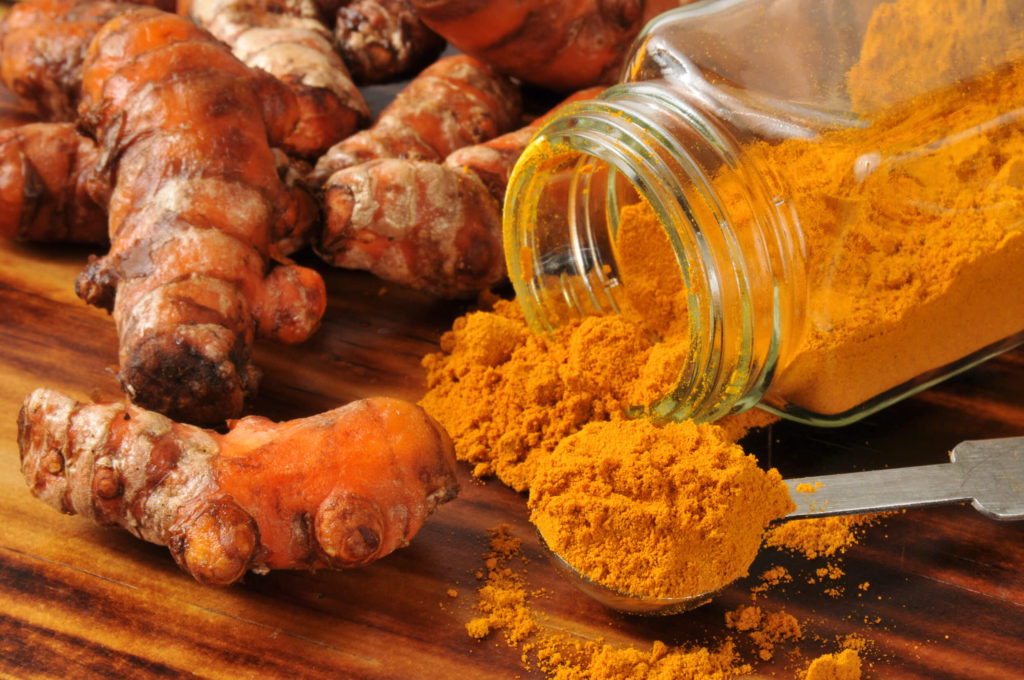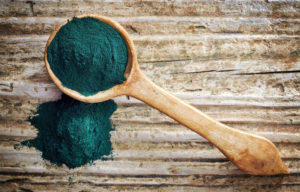Turmeric is a spice that is most widely recognized for its vibrant orange hue. Traditionally used in Asian cuisine such as curries, turmeric has been harvested in India for thousands of years – for its use as both a medicinal herb and a spice. Turmeric is also commonly employed as a coloring agent for food items and fabric. It has strong health benefits and is statistically proven to be one of the most potent natural substances available when it comes to controlling harmful long-term inflammation.

The spice’s profound health benefits stem from the main active ingredient found within the turmeric plant – the chemical curcumin. Curcumin is a potent natural anti-inflammatory as well as an antioxidant. Because more and more health problems are being tied to inflammation, turmeric is proving beneficial for countless patients. In fact, the anti-inflammatory actions of curcumin rival the effectiveness of some prescription anti-inflammatory medications (without the associated side effects) by targeting inflammation at the molecular level.

THE DANGERS OF INFLAMMATION
Low levels of periodic inflammation are completely normal in a healthy body, andintermittent inflammation serves a purpose when it comes to fighting bacteria. However, long-term inflammation has been shown to lead to a whole host of health problems ranging from mild to chronic. Long-term inflammation has been linked to the development of autoimmune disorders, heart disease, metabolic syndrome, cancer, Alzheimer’s, mood disorders, and neurological conditions.
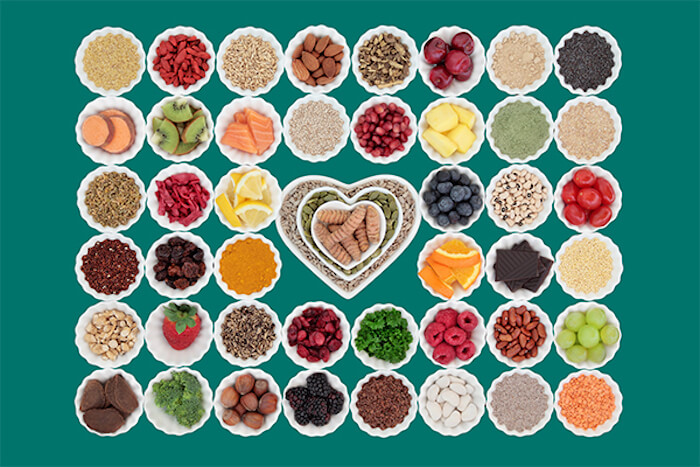
LOWERS RISK OF HEART DISEASE
Anything that can help to lower one’s risk of developing heart disease, the largest killer in the world, is worth a second look. Curcumin has been shown to improve the function of the lining of blood vessels. As mentioned before, curcumin has anti-inflammatory properties, which also play a significant role in lowering heart disease risk.
PROTECTS AGAINST OXIDATIVE DAMAGE
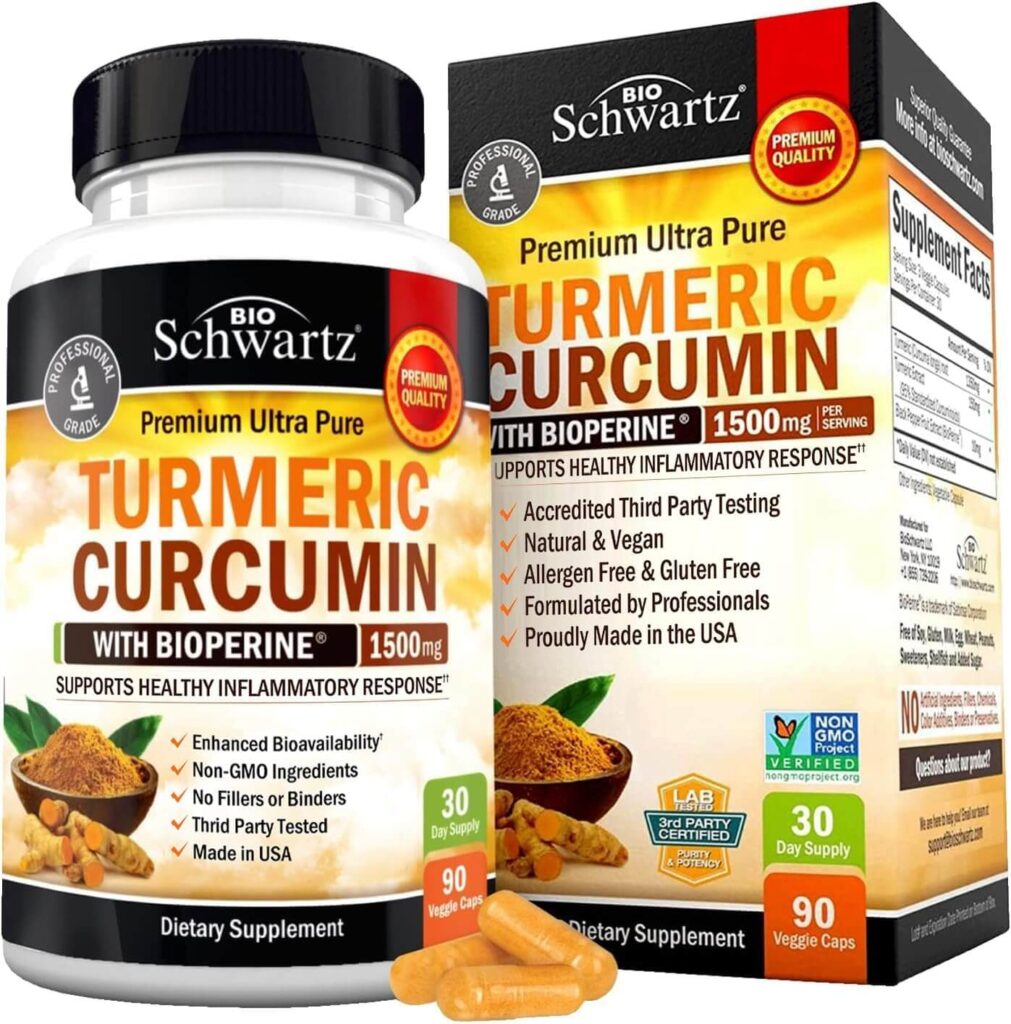
Oxidative damage is linked to many degenerative diseases. Antioxidants, such as curcumin, help to protect the body from free radicals. The antioxidant boosting power of curcumin is two-fold – it blocks free radicals and contributes to the promotion of antioxidant mechanisms within the body.
IMPROVES BRAIN FUNCTIONING
A particular growth hormone, known as Brain-Derived Neurotrophic Factor (or BDNF) is necessary for proper brain functioning. When BDNF is low, there is a greater chance of brain disorders such as Alzheimer’s disease and mood disorders such as depression. Curcumin has been proven to increase the levels of BDNF, therefore increasing neuron growth and helping to protect against degeneration in the brain. A benefit unique to Alzheimer’s disease is that curcumin can help to clear amyloid plaques (protein tangles within the brain that form in Alzheimer’s patients).
Those suffering from depression may also find relief with turmeric supplementation. A study of 60 patients revealed that curcumin is as effective as Prozac when it comes to alleviating depression symptoms.
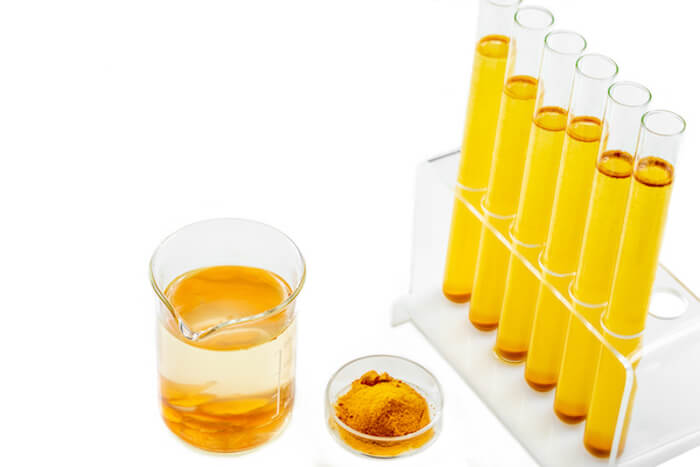
PROMISING FOR CANCER TREATMENT AND PREVENTION
Studies have demonstrated that curcumin supplementation can help reduce the growth of new blood cells within cancerous tumors. Curcumin works at the molecular level to slow the spread of cancer and to even help kill existing cancerous cells. Because of these findings, turmeric supplementation is very promising in the world of cancer treatment and further studies are currently taking place. Although adding turmeric to food may provide some benefits, for best results a supplement that contains high doses of curcumin is required. Black pepper can be consumed alongside turmeric supplements, to enhance the body’s absorption of curcumin by up to 2,000%.
Information in this article is not to be considered medical advice in any way, shape or form. Always contact a trained health practitioner if you have any kind of health-related questions or concerns.
Read full medical disclaimer>>>
References:
https://authoritynutrition.com/top-10-evidence-based-health-benefits-of-turmeric/
http://www.ncbi.nlm.nih.gov/pubmed/17569207
http://immunityageing.biomedcentral.com/articles/10.1186/1742-4933-7-1
http://onlinelibrary.wiley.com/doi/10.1111/j.1755-5949.2010.00147.x/fullhttp://www.ncbi.nlm.nih.gov/pubmed/18462866
http://www.ncbi.nlm.nih.gov/pubmed/22481014
YOU MAY ALSO LIKE:
WHY SHOULD YOU ADD BLUE-GREEN ALGAE TO YOUR DIET
Guest post by E3 Live The discovery of this ancient strain of blue-green micro-algae Aphanizomenon flos-aquae (AFA) has led to a…
3 SURPRISING SCIENTIFIC WAYS THAT OUR HEALTH IS CONNECTED TO THE COSMOS
We’ve all heard the axiom that we are all interconnected and that our thoughts and actions can impact not only our…
SOME FACTS FOR THE NATIONAL YOGA MONTH
Whether it’s saluting the sun first thing in the morning or unwinding after work with a bit of Downward Dog, Americans…
QUIET THE CHAOS WITH MINDFULNESS MEDITATION FOR ANXIETY AND DEPRESSION
Life can get chaotic sometimes causing our minds to work overtime. This process creates unwanted stress, but there are ways to…
STRIKINGLY CREATIVE USES FOR OLD SHIPPING CONTAINERS
There’s nothing that does both the heart and mind better than re-purposing old things. You save room in landfills, the planet…
IS AIR CONDITIONING BAD FOR YOU?
Air conditioning feels great when it’s blistering hot outside, so what’s not to love? Believe it or not, there’s a growing…

